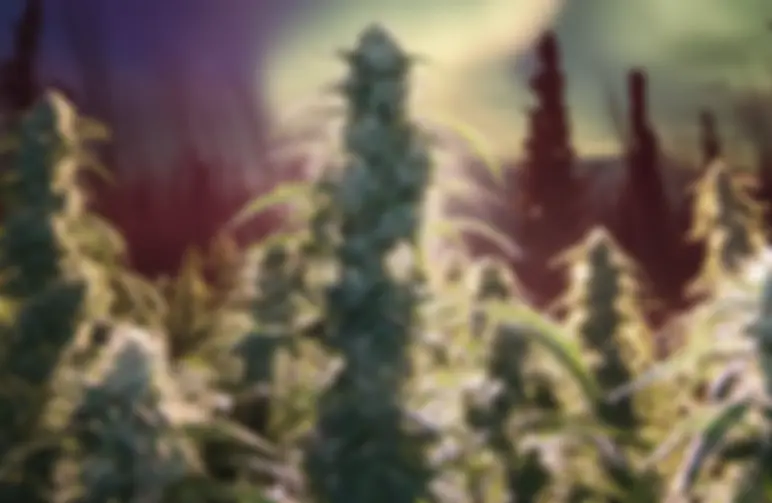Farmers all over the world are under more and more pressure to change the waypperg they do things as the world's climate becomes less and nik's. Cannabis growers need to know how to deal with environmental stress, especially when it's cold outside. Cannabis is a plant that many people love, but it is also very fragile when it is under stress. This makes it both a challenge and an opportunity for growers. A recent groundbreaking study from Cornell University's School of Integrative Plant Science gives us important information about how to take care of cannabis plants when they are under cold stress. This is an important step in keeping both the plants healthy and the cannabinoids high quality.
Why Cold Stress Matters in Cannabis Cultivation
Cannabis has quickly become more popular around the world, thanks in part to the growing market for cannabidiol (CBD). The market for CBD alone is expected to be worth more than $6.3 billion by 2025. Even though the cannabis industry is growing quickly, cannabis is still very sensitive to environmental stresses, especially freezing temperatures that can kill crops and change the cannabinoid profiles in a big way.
Exploring Cold Stress: Insights from the Cornell Study
Researchers at Cornell wanted to find out how different cannabis strains react to cold in their study published in Horticulturae (Galic et al., 2022). They looked at two well-known types in particular: "FINOLA," a low THC hemp type, and "AutoCBD," a high-CBD strain. The team looked closely at things like the age of the plants, how well they adapted to the cold (brief exposure to mild cold), and different levels of cold intensity.
Surprising Discoveries on Cold Stress and Plant Health
- Cold Acclimation: Not as Helpful as Thought
It's interesting that the common practice of getting plants used to mild cold temperatures didn't make them more resilient like people thought it would. Instead, this acclimation actually made the plants more stressed out, which means that growers should think about this common method again. - The Age of the Plant is Important
People often think that older plants are stronger, but this study found that older cannabis plants are more likely to be hurt by the cold. This means that you need to be extra careful as plants grow, especially when it comes to stress that pests or the environment have caused. - The Critical Temperature Threshold
Testing showed that cannabis plants could handle mild freezing temperatures ([-2:celsius] to [-4:celsius]) without much harm. However, when the temperature dropped to [-8:celsius], the plants suffered severe stress and damage. This gives growers clear advice: they may not need to take extreme steps to protect their plants during mild cold spells.
What Growers Need to Know About Cannabinoids
Cold stress doesn't just hurt the health of the whole plant; it also has a big effect on the production of cannabinoids, especially CBD and THC. Researchers saw:
Lower Cannabinoid Levels After Cold Acclimation
Plants exposed to prolonged mild cold produced notably reduced levels of both CBD and THC, with THC seeing a more significant drop. For growers, this can alter the CBD:THC ratio, impacting product quality and market value.Regulatory Considerations
Interestingly, this cold-induced cannabinoid reduction may help growers comply with strict THC regulations, keeping levels below the critical 0.3% threshold.
Practical Strategies for Cannabis Cultivators
This research gives growers useful information right away that they can use to protect both their yields and the quality of their cannabinoids. Here are some suggestions that you can use:
Reassess Cold Acclimation Practices: Avoid prolonged exposure to mild cold conditions if cannabinoid yield is your priority.
Protect Younger Plants, Monitor Older Plants: Younger plants handle cold better, but don't let your guard down with mature crops. Monitoring stress factors at all growth stages is essential.
Prioritize Resources Wisely: Understand that mild cold events ([-2:celsius] to [-4:celsius]) don't typically require significant interventions, allowing you to conserve resources for genuinely severe conditions.
The Future of Cold Stress Research: What Comes Next
This study is a big step forward in figuring out how cannabis reacts to stress in the environment. The authors do, however, stress the need for more field research, especially looking at multiple stressors at once, to improve cultivation practices even more.
What You Can Do Today as a Grower
- Look over your current ways of dealing with the cold and think about how to get used to it for a longer time.
- Take steps to protect younger plants and keep an eye out for signs of stress in older plants.
- Plan for mild cold events and save your big protective efforts for when the weather is really bad.
As the cannabis industry grows, staying up to date on the latest research, like this one from Cornell, will help growers deal with climate problems and keep their crops healthy and ready for sale in our changing world.





